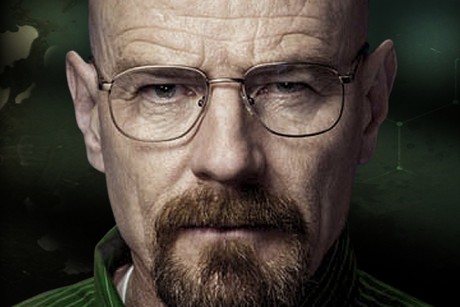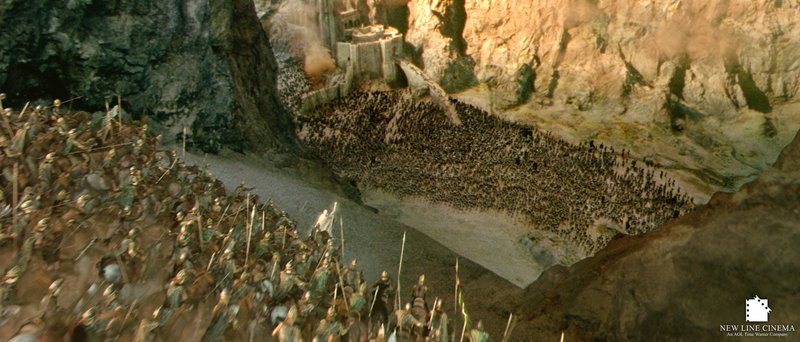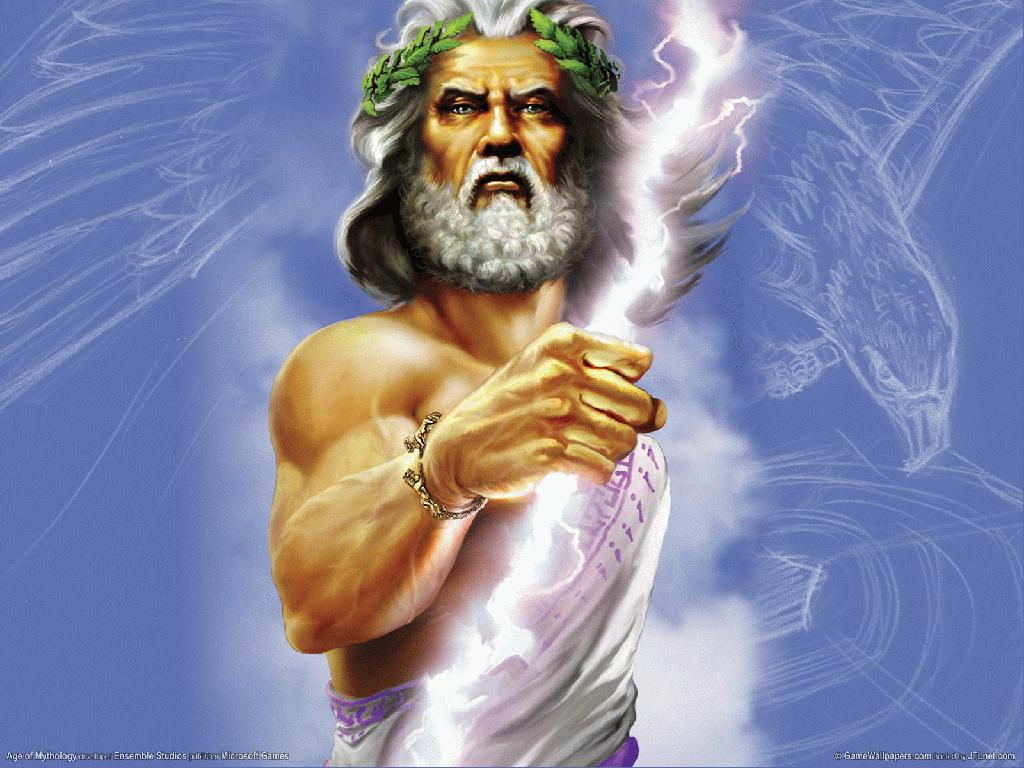Last updated on October 2, 2013
[list type=”arrow, square, plus, cross or check”]
- Part 1 – Materialism and the Role of Myth
- Part 2 – The Illusions of Choice
- Part 3
[/list]
I find myself lacking the will to watch televisions shows and films. For whatever reason, I fill that time with whatever interesting book I happen to come across (right now: Orthodoxy by G.K. Chesterton and Personal Recollections of Joan of Arc by Mark Twain). This impulse on my end comes from no particular reasoning, nor for any theological, philosophical, or rational reasoning. I do not believe that such ventures constitute a waste of my time, nor do they remain irrelevant to the goals and purposes of my “theology blogging”.
I just do not understand what Breaking Bad contributes to my life, is what I purport to say. Everything starts bad, and end bad. The stories and explanantions of the modern world end in sadness, heartbreak, and a profound acceptance of one common belief: that this is all there is, and beyond it one says nothing. Do I like Shakespeare? Certainly! Can I watch the end results of his character’s actions incessantly? Not so much. To contrast, though, Shakespeare provides a clear motive, action, and downfall to the people he creates. One observes the harrowing chain of causality that leads men to their own destruction and undoing. As far as Breaking Bad goes? Who is to say? Vince Gilligan will not make a judgement call, nor should he. The actions depicted herein, contrasted to the Bard, are not immoral but amoral. Ethics, as the Tractatus Wittgenstein would tell us, lies outside the world; we can’t say anything for or against his actions with any degree of real authority.
Rather, we find ourselves hemmed in, set about on all sides by a intellectual prison of our own making. I would call it the prison of materialism in modern terms. Most people today declare something “good” or “bad” without understanding WHY that moral proclamation carries any weight. You see this all the time, with nary an objection from anyone or anything, Christian or non-Christian alike. You see it in the Super Bowl, when objectifying women’s fine and dandy because, hey, the human brain processes women as groups of objects rather than people. Nature equals “correct”; we cannot blame anyone for something they do by nature. The observable overtakes the un-observable in any case. Once Christendom accepted the idea, we threw all our chips onto the table without seeing the bluff: that the materialist did not have any cards to play. Instead, they said: my powers of talent and intellect made all of this. Deuteronomy 8 tells us the exact opposite:
16 In the wilderness He fed you manna which your fathers did not know, that He might humble you and that He might test you, to do good for you in the end. 17 Otherwise, you may say in your heart, ‘My power and the strength of my hand made me this wealth.’ 18 But you shall remember the Lord your God, for it is He who is giving you power to make wealth, that He may confirm His covenant which He swore to your fathers, as it is this day.
In that way, this development of the mind infects (yes, like a disease) across the mediums, video games included. Mass Effect’s endings (which, in all blunt honesty, I’ve not played but seen) don’t strike a harsh contrast as much a slightly different interpretation of the same events. One saves people and one does not, but surely neither of them place the universe in a good spot, do they? Loss of technology or loss of self – sacrifices were made in the end. Humans must give up something to achieve their dreams, their hopes; nothing will help you but yourself. Or, as in the paragons of the modern culture mindset, “you can’t always get what you want, but you get what you need.” Salvation is broken; you can’t win. At least the paradigm of our modern life tells us as such.
We see neither black nor white, but shades of grey. Yet everyone seems to forget that white is, indeed, a color, and that grey naturally turns to black when a hint of color spoltches onto the canvass. A world of amorality only goes so long until that which was identified as “immorality” becomes everyone’s de facto standard. Not in the obvious ways, of course; Screwtape knows better than that. Sin comes in the subtle ways that one cannot detect, and the biggest of all derives from that subtle sense of despair which our world holds. It covers over said hopelessness with every cultural device, every media distraction, every little bit of SOMETHING to cover over the inevitable decline. If history tells us anything, cultures rise and fall based on their beliefs – sometimes positively, sometimes negatively. What will they say of the United States, you wonder?
Thus, the modern narrative of Western culture just never fulfills me in any sense. Why all the sad, unhappy results? Why the unfortunate end? Must every single artistically viable work contain some notion of horrible, horrible despair and death? Does darkness arrive as a natural result of the light, a light that turns a sickening green and then fades into nothing? Our light became anemic the moment we accepted the prison of the materialist – only we held court, and passed judgement on ourselves. A series of compromises turns into an end an und für sich (how’s that for a smart philosophy reference? Go look it up, mein Gott!).
Let me offer an alternative to the slow catastrophe of the myths and legends of our culture: the Tolkien Eucatastrophe. In a phrase, there aren’t nearly enough stories that reflect the common experience of all men and women. Daily life contains its own mysteries and its own joys that, at times, remain imperceptible as to their grander meaning in our “personal narrative” (I may live the life of the mind, but I am sure we all see our lives as some grand story being played out and written as we go along). There’s a magic that exists all around us, and I’m not talking in the vague sense of paganism. Rather, I mean thinking about the world mythologically.
Myths arrived and thrived long before the arrival of the prison. They sought to reach out to a world beyond. They conveyed truths about humanity and human life that reduction to a mechanistic world ultimately blots out. They pointed out common themes of human existence without, in straightforward terms, saying anything about them. To put it frankly, video games became our modern mythology, grounded in the myths and legends of an old world. They have begun this process of converting to the mechanistic worldview, if the modern market shows any indication. Watch the transformation of Tomb Raider, a game known for its fantastical artifacts and Indiana Jones-style sensibilities, into yet another gritty, harrowing third person action game. One sees no wonder in the new Lara Croft; just a enveloping realism, sorrow, and despair.
We lose the ability to wonder in the face of the death of myth. Can you list some common themes of myths? Tolkien, calling them “faerie-stories”, says as such:
The magic of Faerie is not an end in itself, its virtue is in its operations: among these are the satisfaction of certain primordial human desires. One of these desires is to survey the depths of space and time. Another is (as will be seen) to hold communion with other living things. A story may thus deal with the satisfaction of these desires, with or without the operation of either machine or magic, and in proportion as it succeeds it will approach the quality and have the flavour of fairy-story.
We might see this as the inevitable spot where the modern storyteller misses the point of the myth entirely. He takes the mechanisms but leaves out the heart. Harry Potter seems, to me, placed primarily in this spot – the magical world of the agnostic and “the vulgar devices of the laborious, scientific, magician.” Real wills and powers exist independantly of human willing and existence, powers both small and great. The world remains full of untapped mysteries and unknown factors, some dangerous and some friendly. Yet, humans have a certain connection with the world – barring that, the universe itself. An intimation of design and purpose creeps into the truth of mythology; it explains questions, but only vaguely, but still intends to be purposeful. Most of all, they display common characteristics but never become common by virtue of it; each myth keeps its unique elements, characters, moral, etc., without dilution from a mere common element. That may work for the anthropologists wishing for a reduction and an oversimplification, but not here. Certainly inherited elements appear or diffuse among a number of channels, but they never create two entirely identical stories; the devil’s in the detail, as they say.
Tolkien calls this magnificent and diverse display a result of “sub-creation”; that is, a created thing creating other things, though not creating things ex nihilo. If human minds primarily operate through generalization (true enough!) and abstraction (rationality, anyone?), we create by being created in the imago dei. It is in our nature – a fallen nature, with the power to create good things and twist them to evil, but a nature with will and possibility nonetheless. The sub-creation isn’t there primarily to explain, but to wonder. To take Tolkien’s example:
Let us take what looks like a clear case of Olympian nature-myth: the Norse god Thórr. His name is Thunder, of which Thórr is the Norse form; and it is not difficult to interpret his hammer, Miöllnir, as lightning. Yet Thórr has (as far as our late records go) a very marked character, or personality, which cannot be found in thunder or in lightning, even though some details can, as it were, be related to these natural phenomena: for instance, his red beard, his loud voice and violent temper, his blundering and smashing strength. None the less it is asking a question without much meaning, if we inquire: Which came first, nature-allegories about personalized thunder in the mountains, splitting rocks and trees; or stories about an irascible, not very clever, redbeard farmer, of a strength beyond common measure, a person (in all but mere stature) very like the Northern farmers, the bœndr by whom Thórr was chiefly beloved? To a picture of such a man Thórr may be held to have “dwindled,” or from it the god may be held to have been enlarged. But I doubt whether either view is right—not by itself, not if you insist that one of these things must precede the other. It is more reasonable to suppose that the farmer popped up in the very moment when Thunder got a voice and face; that there was a distant growl of thunder in the hills every time a story-teller heard a farmer in a rage.
Thórr must, of course, be reckoned a member of the higher aristocracy of mythology: one of the rulers of the world. Yet the tale that is told of him in Thrymskvitha (in the Elder Edda) is certainly just a fairy-story. It is old, as far as Norse poems go, but that is not far back (say A.D. 900 or a little earlier, in this case). But there is no real reason for supposing that this tale is “unprimitive,” at any rate in quality: that is, because it is of folk-tale kind and not very dignified. If we could go backwards in time, the fairy-story might be found to change in details, or to give way to other tales. But there would always be a “fairy-tale” as long as there was any Thórr. When the fairy-tale ceased, there would be just thunder, which no human ear had yet heard.
To act as if oral tradition did not explicitly choose which parts of the story to keep seems highly preposterous; parts of the stories, details and those elements with a special statement towards a moral quality stay in these tales. They continued progressing until we have them as we read them now (and whatever the earliest extant documents say about the development of those stories). Parts of history, parts of forgotten people, parts of whatever cultures thought worth keeping: these are the elements that find there way into myths. The people of antiquity kept what they thought worth the trouble to keep; that is the essential point. Not modernist, not against tradition, but for the truth of things, however bizarre, unnatural, perhaps even supernatural.



